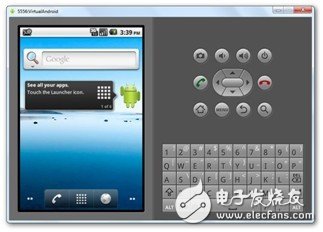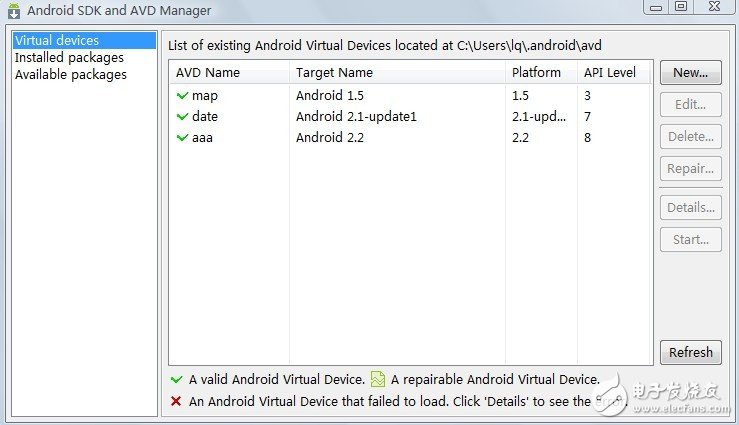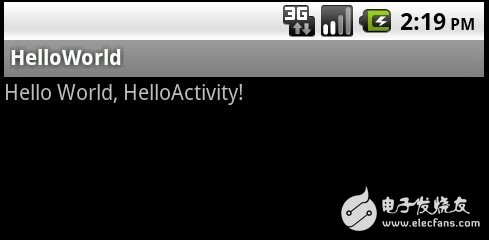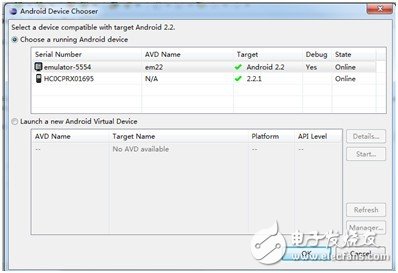Android is a mobile device software stack that includes operating systems, middleware, user interfaces, and key application software. In other words, Android is a lightweight operating system based on Java and running on the Linux kernel. Its full-featured features include a series of application software that Google has built on it, such as basic application functions such as telephone and text messaging. Figure 1-1 shows the Android emulator, from which you can learn about the Android operating interface.

What is the difference between an Android emulator and a real machine ? Mainly reflected in nine points:
1. The Android emulator does not support calling and answering actual calls, but can simulate phone calls (incoming and outgoing) through the console.
2, Android emulator does not support USB connection.
3, Android simulator does not support camera / video capture.
4, Android simulator does not support audio input (capture), but supports output (replay).
5, Android emulator does not support extended headphones.
6, Android simulator can not determine the connection status.
7, Android simulator can not determine the battery power level and charge status.
8. The Android emulator cannot determine the insertion/ejection of the SD card.
9, Android emulator does not support Bluetooth.
After understanding the basic differences between the Android emulator and the real machine, let's look at how the Android program runs on the emulator and the phone.
1.Android program to run the program on the simulatorBefore running an Android application, you need to create an Android Virtual Device (AVD), commonly known as a mobile phone simulator. In the Eclipse environment, select the "Window" → "Android SDK and AVD Manager" command, the "Android SDK and AVD Manager" dialog box appears, as shown in Figure 1-1.

Click the "New" button, create a new Android virtual device, enter the name of the Android virtual device, the target Target (SDK), the path of the SD Card, and the skin of the virtual device (the size of the window, by default WVGA800) . Click the "Create AVD" button to create a virtual device, as shown in Figure 1-2.

After the creation of the virtual device is complete, right-click the created project and select Run As → Android ApplicaTIon from the displayed shortcut menu, as shown in Figure 1-3.

Eclipse will open the default Android emulator just created. The operation screen is the same as that of a real phone. After the computer is turned on, it will open the running program. The operation screen is shown in Figure 1-4.

During development, running an Android program on an actual device is almost the same as running it on an emulator. All that needs to be done is to use a USB cable to connect the phone to the computer and install a device driver for the corresponding phone. If the simulator window is open, close it. Just connect the phone to your computer and the application will load and run on your phone.
Select "Run" → "Run" (or Debug) command in Eclipse, then a window will pop up (see Figure 1-5), let you choose to use the simulator or mobile phone to display, if you choose the phone, you can on the phone Run the program on.

Brake Disc For DAEWOO
Daewoo Brake Disc,Daewoo Auto Brake Disc,Daewoo Car Brake Disc,Daewoo Automobile Brake Disc
Zhoushan Shenying Filter Manufacture Co., Ltd. , https://www.renkenfilter.com